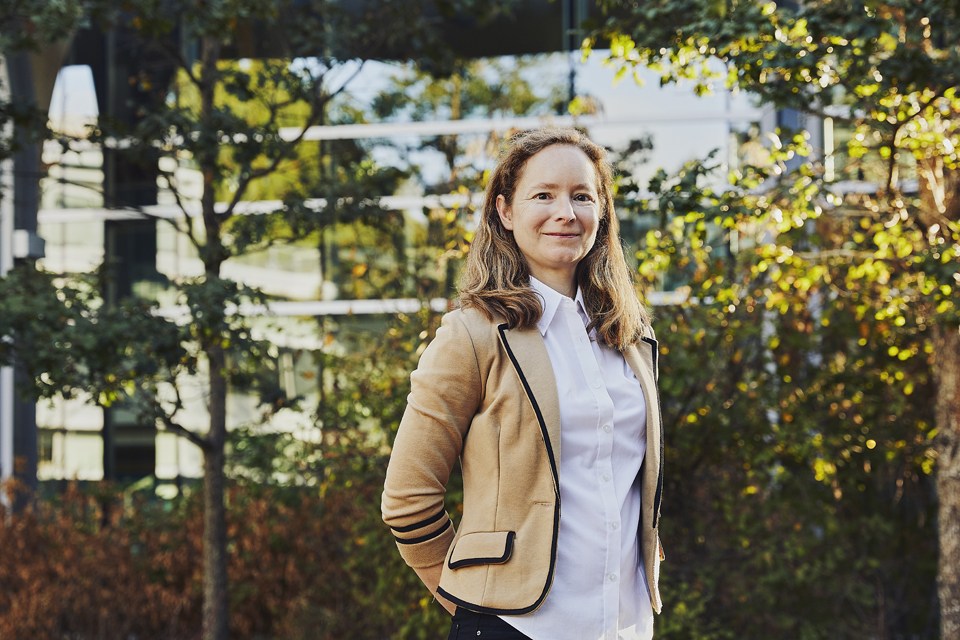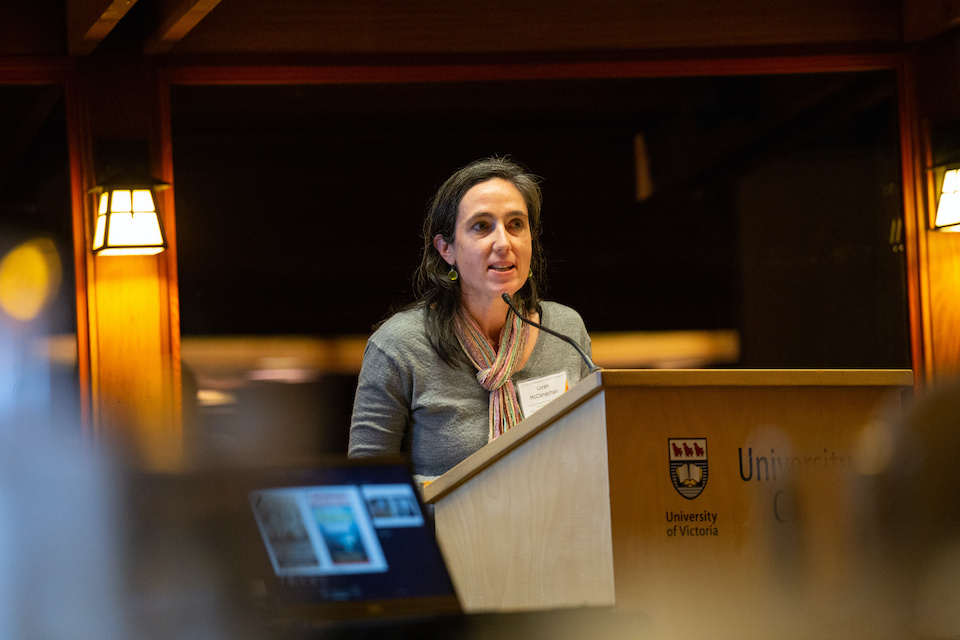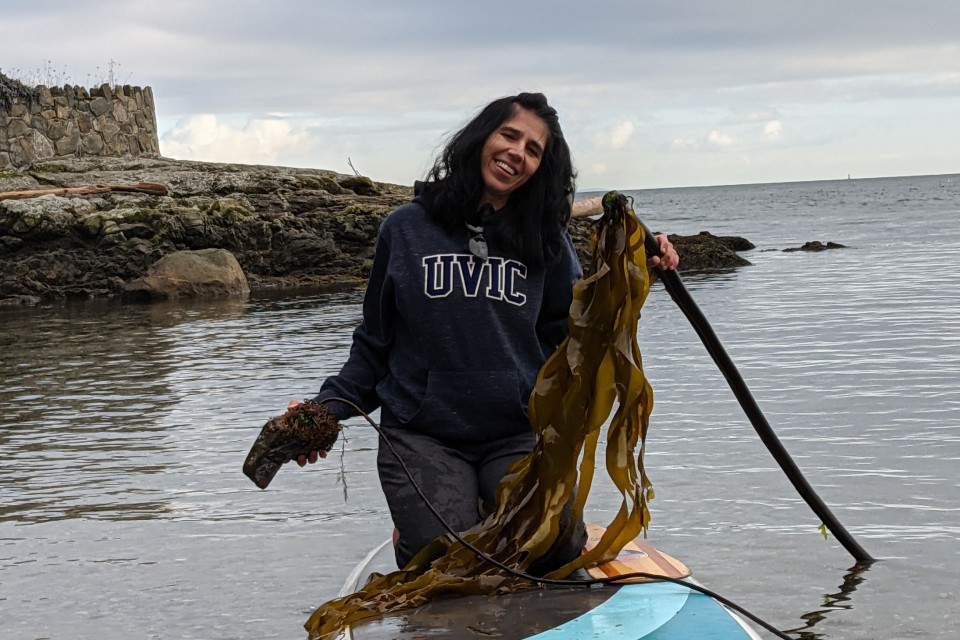UVic women ocean scientists lay path for next wave of researchers
- Richard Dal Monte

University of Victoria’s ocean women in social sciences are scientists and researchers. Their focus is the health of our oceans and the living things in them, and what that means for the entire planet. They are following in the footsteps of women before them and laying their own path for those to come.
On this International Women’s Day, one thing in common these UVic scholars have is an approach to their work that honours, values and promotes the benefits of collaboration and cooperation.
From a marine conservation scientist to a master of science student, from a Canada Research Chair in Ocean History and Sustainability to a scholar of coastal oceanography, these internationally recognized researchers support undergraduate, graduate and postdoctoral students in geography, Indigenous studies, environmental studies and history. Their work crosses boundaries between the social and natural sciences and the humanities, and they conduct their research with peers and local community experts.
Natalie Ban, a PhD and associate professor in environmental studies at UVic, co-creates projects with, and is guided by, Indigenous partners. Her research weaves Indigenous knowledges with biodiversity conservation to help devise strategies that balance the needs of humans with the sustainability of marine populations.
For instance, her research on Dungeness crab and yelloweye rockfish, together with work by partners, resulted in changes to management strategies, including closures for commercial and recreational fishing in areas of importance to Indigenous Peoples, and updates to the species-at-risk assessment report by Fisheries and Oceans Canada.
“I love doing research because it has the potential to effect change,” says Ban.
Asked about her focus on research partnerships and whether the inclination toward collaboration is a uniquely female trait, she says: “It’s really hard to disentangle what’s just me uniquely and what makes me so as a woman… I like listening and hearing others, and absorbing and always learning, which isn’t necessarily typical in academia.
“I love doing collaborative work because it uplifts and brings together multiple voices rather than feeling that I need to scream out my own voice.”
Her approach has not gone unnoticed. Recipient of an E.W.R. Steacie Memorial Fellowship from the Natural Sciences and Engineering Research Council of Canada, she was also elected to the College of New Scholars, Artists and Scientists of the Royal Society of Canada, one of the country’s highest academic honours, for a vision that “embraces diversity (of people, methods and perspectives) and balances the needs of human communities with the needs of biodiversity and ecosystem conservation.”
Some say their approach is characteristically—and powerfully—female-identified.
Next generation of women ocean scientists, researchers

Caitie Frenkel, a graduate student in the School of Environmental Studies who works with Ban and has expertise in ghost gear—abandoned, lost or discarded fishing equipment—commercial fisheries and marine spatial mapping, says: "I think that stereotypically feminine traits—sensitivity, cooperation, being bubbly, etc.—and presentation are seen as soft and frivolous in the sciences. However, despite being dismissed by some, I believe that these traits benefit my research—people are more likely to help and participate if they know you’re being genuine."
Ilse Martinez, a PhD student who works with Loren McClenachan, associate professor and Canada Research Chair, Ocean History and Sustainability, approaches her research in a similarly cooperative manner, saying, “My research focuses on working hand in hand with fishing communities to understand the history of the different artisanal fisheries in the Yucatan Peninsula. I believe that successful fisheries management requires taking into account the historical and cultural importance of marine resources for local people. “

Maycira Costa, a geography professor, leads a lab that works with remotely sensed imagery to understand biophysical processes in ocean waters. For her and her geography grad students, #BreakTheBias is more than just the theme for this year’s International Women’s Day.
One of Costa’s students, Lianna Gendall, studies how the kelp forests of Haida Gwaii are changing and what is driving these changes over the last century using satellite imagery and historic data. She notes that in the past year, she was part of an all-woman crew—still an unusual occurrence—that collected data on culturally important kelp forests from a 30-foot boat equipped with a drone, an underwater remotely operated vehicle and a drop camera.
Another of Costa’s grad students, Sejal Pramlall, says, “My biggest challenge is having my demographic under-represented in this field, meaning that there are no women of colour who I could look up to as role models.” She adds, “While there is still a long way to go, I am grateful for all the trailblazers before me who have paved a path for women in ocean science.”
Ban similarly credits visionary scientists such as UVic professor emeritus Verena Tunnicliffe, who was recently named an officer of the Order of Canada for her work in deep-sea exploration. Ban says her academic and professional path was paved “because of the mentors and women who came before me, and made it more normal and accepted for women to be in these places.”

